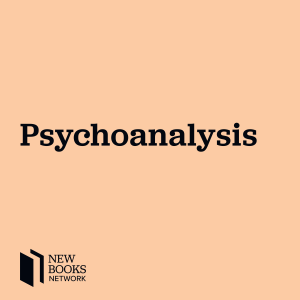
- Podcast Features
-
Monetization
-
Ads Marketplace
Join Ads Marketplace to earn through podcast sponsorships.
-
PodAds
Manage your ads with dynamic ad insertion capability.
-
Apple Podcasts Subscriptions Integration
Monetize with Apple Podcasts Subscriptions via Podbean.
-
Live Streaming
Earn rewards and recurring income from Fan Club membership.
-
Ads Marketplace
- Podbean App
-
Help and Support
-
Help Center
Get the answers and support you need.
-
Podbean Academy
Resources and guides to launch, grow, and monetize podcast.
-
Podbean Blog
Stay updated with the latest podcasting tips and trends.
-
What’s New
Check out our newest and recently released features!
-
Podcasting Smarter
Podcast interviews, best practices, and helpful tips.
-
Help Center
-
Popular Topics
-
How to Start a Podcast
The step-by-step guide to start your own podcast.
-
How to Start a Live Podcast
Create the best live podcast and engage your audience.
-
How to Monetize a Podcast
Tips on making the decision to monetize your podcast.
-
How to Promote Your Podcast
The best ways to get more eyes and ears on your podcast.
-
Podcast Advertising 101
Everything you need to know about podcast advertising.
-
Mobile Podcast Recording Guide
The ultimate guide to recording a podcast on your phone.
-
How to Use Group Recording
Steps to set up and use group recording in the Podbean app.
-
How to Start a Podcast
-
Podcasting
- Podcast Features
-
Monetization
-
Ads Marketplace
Join Ads Marketplace to earn through podcast sponsorships.
-
PodAds
Manage your ads with dynamic ad insertion capability.
-
Apple Podcasts Subscriptions Integration
Monetize with Apple Podcasts Subscriptions via Podbean.
-
Live Streaming
Earn rewards and recurring income from Fan Club membership.
-
Ads Marketplace
- Podbean App
- Advertisers
- Enterprise
- Pricing
-
Resources
-
Help and Support
-
Help Center
Get the answers and support you need.
-
Podbean Academy
Resources and guides to launch, grow, and monetize podcast.
-
Podbean Blog
Stay updated with the latest podcasting tips and trends.
-
What’s New
Check out our newest and recently released features!
-
Podcasting Smarter
Podcast interviews, best practices, and helpful tips.
-
Help Center
-
Popular Topics
-
How to Start a Podcast
The step-by-step guide to start your own podcast.
-
How to Start a Live Podcast
Create the best live podcast and engage your audience.
-
How to Monetize a Podcast
Tips on making the decision to monetize your podcast.
-
How to Promote Your Podcast
The best ways to get more eyes and ears on your podcast.
-
Podcast Advertising 101
Everything you need to know about podcast advertising.
-
Mobile Podcast Recording Guide
The ultimate guide to recording a podcast on your phone.
-
How to Use Group Recording
Steps to set up and use group recording in the Podbean app.
-
How to Start a Podcast
-
Help and Support
- Discover

Vanessa Sinclair and Manya Steinkoler, "On Psychoanalysis and Violence" (Routledge, 2018)
Gun violence must be what drive defusion looks like; with every shot fired, with every life stilled by rounds of ammo, we are summoned to address the acute darkness of psychic collapse and radical decompensation. We witness the unthreading of a once more sturdily interwoven seam. We live on the edge. Don’t sit with your back to the door. By the time you get that gun out of your purse, you know it’s already too late. How did we get to this point? How did you and I become captive to a violence that holds us all captive?
Ours is a culture that depends on spikes in fear followed by states of frenzy followed by mind-blowing numbness. Given the overstimulation that drives us to seek quiescence—how we live now—I chose the death drive as the autumnal theme for my work at NBiP. Vanessa Sinclair and Manya Steinkoler’s book Psychoanalysis and Violence: Contemporary Psychoanalytic Perspectives (Routledge 2018) provided me with an antidote to the temptation to defensively play dead.
It is perhaps an understatement to say that our capacity to withstand otherness needs some bolstering. We are in luck with this interview for no one works with otherness in quite the way Lacanian-inflected analysts do.
Sinclair and Steinkoler argue that we have gone beyond being unbehagen—the malaise one feels in everyday life (which would now feel like a luxury)—and detail a different kind of anxious, imperiled experience—they call it to be “angwashed”: in short, we are soaking in it.
This book is about the consequences of a new experience of aloneness, about the inculcation and proliferation of narcissism, and its dire consequences. I think of guns and I think of trigger warnings. The one who pulls the trigger is radically alone. The one who needs the safe space ends up being set apart. No one belongs. Belonging demands we be with others. Yet when you kill someone they are with you forever. When you kill someone you have also at long last really made contact with a being outside yourself. As Modern analysts say: “follow the contact.”
Lacan reminds us that the human subject is catapulted into being by an encounter with language, the other, and the social link. Each of these entities threatens human narcissism. As such, every encounter with difference (represented by language, the other, the world) can arouse the specter of violence.
Please feel free to address all comments regarding the interview to me at tracedoris@gmail.com
Learn more about your ad choices. Visit megaphone.fm/adchoices
Support our show by becoming a premium member! https://newbooksnetwork.supportingcast.fm/psychoanalysis
More Episodes
Create your
podcast in
minutes
- Full-featured podcast site
- Unlimited storage and bandwidth
- Comprehensive podcast stats
- Distribute to Apple Podcasts, Spotify, and more
- Make money with your podcast
It is Free
- Privacy Policy
- Cookie Policy
- Terms of Use
- Consent Preferences
- Copyright © 2015-2026 Podbean.com


